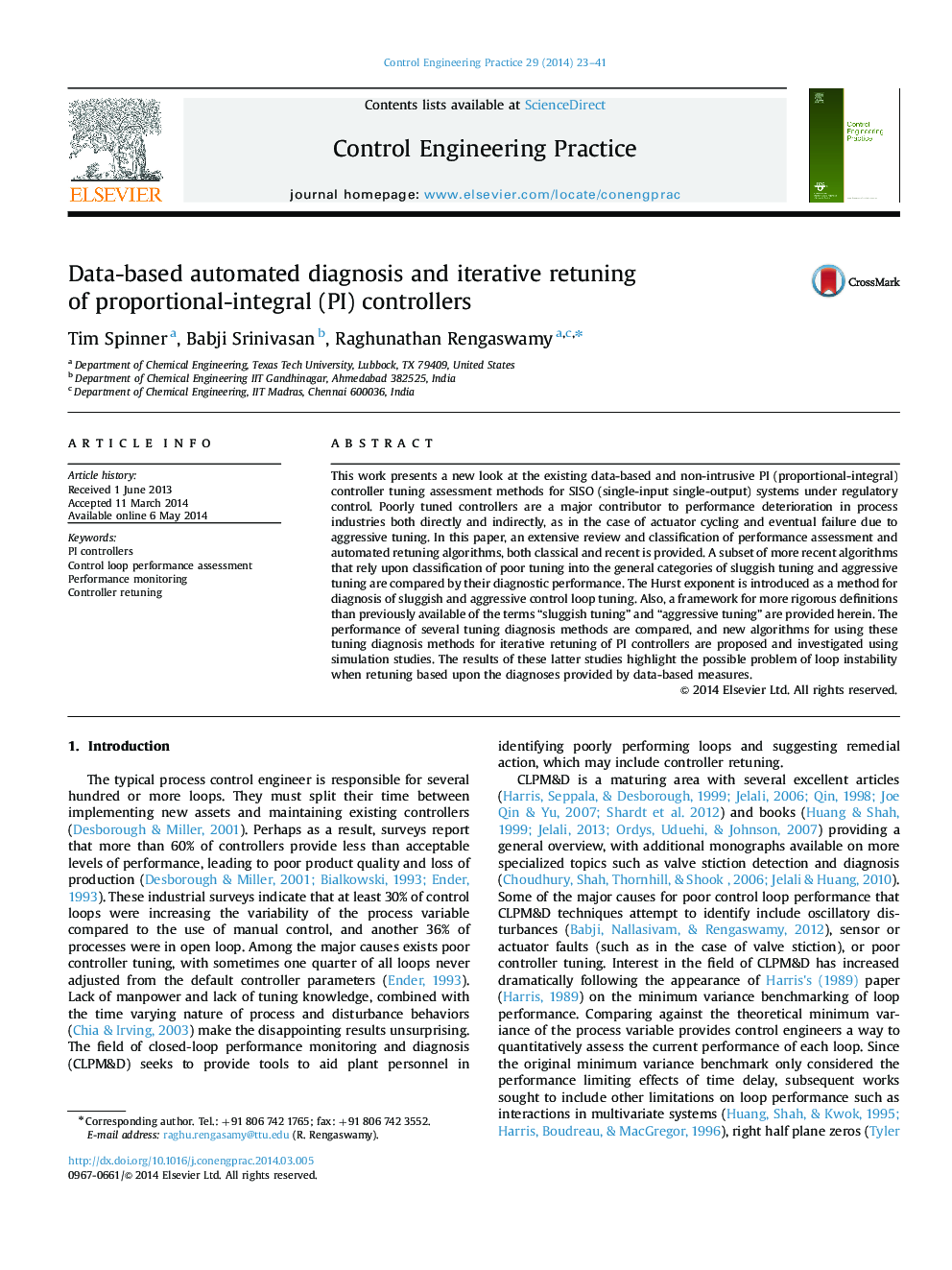| Article ID | Journal | Published Year | Pages | File Type |
|---|---|---|---|---|
| 699323 | Control Engineering Practice | 2014 | 19 Pages |
•We present a brief review and classification of PI/PID controller assessment and retuning methods.•Connections are made between present research areas on PI controller assessment and past research on automated retuning.•The use of the Hurst Exponent as a data-based technique for assessing PI controller tuning is introduced.•Simulation examples demonstrate the performance of several data-based controller tuning assessment techniques.•The issue of stability when using data-based retuning techniques is highlighted.
This work presents a new look at the existing data-based and non-intrusive PI (proportional-integral) controller tuning assessment methods for SISO (single-input single-output) systems under regulatory control. Poorly tuned controllers are a major contributor to performance deterioration in process industries both directly and indirectly, as in the case of actuator cycling and eventual failure due to aggressive tuning. In this paper, an extensive review and classification of performance assessment and automated retuning algorithms, both classical and recent is provided. A subset of more recent algorithms that rely upon classification of poor tuning into the general categories of sluggish tuning and aggressive tuning are compared by their diagnostic performance. The Hurst exponent is introduced as a method for diagnosis of sluggish and aggressive control loop tuning. Also, a framework for more rigorous definitions than previously available of the terms “sluggish tuning” and “aggressive tuning” are provided herein. The performance of several tuning diagnosis methods are compared, and new algorithms for using these tuning diagnosis methods for iterative retuning of PI controllers are proposed and investigated using simulation studies. The results of these latter studies highlight the possible problem of loop instability when retuning based upon the diagnoses provided by data-based measures.
